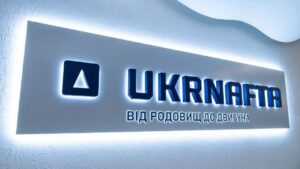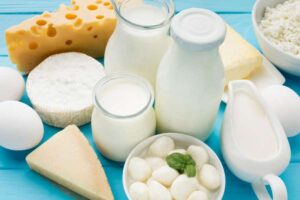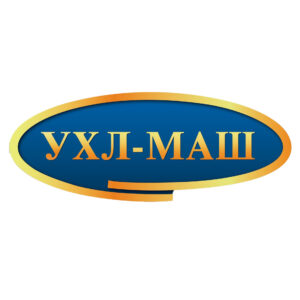
On April 3-4, the first-ever summit meeting between the EU and Central Asian countries will take place in Samarkand. This landmark event will open a new page in relations between the regions, marking a transition to a qualitatively new level of multilateral cooperation.
Since the emergence of newly independent states in Central Asia, the EU has been working to establish bilateral partnerships with them. Since 1991, the development of the EU’s strategy in Central Asia has gone through several important stages, which were driven by changes in the system of international relations, the dynamics of European integration, and the role of Central Asia in global politics.
The first large-scale program of cooperation was the Technical Assistance to the Commonwealth of Independent States (TACIS, 1991-2006), which supported the countries of the region in political and economic reforms, transition to a market economy and strengthening the rule of law. More than 3,000 projects were implemented under this initiative, totaling more than €7 billion. The key achievement of TACIS was the conclusion of Partnership and Cooperation Agreements with the countries of Central Asia.
Another important milestone was the adoption of the first EU Strategy for Central Asia in 2007. This period was marked by the beginning of the perception of Central Asia as a single region. A mechanism of annual meetings at the level of foreign ministers was created.
The policy of neighborhood and regional partnership implemented by the Republic of Uzbekistan under the leadership of President Mirziyoyev made a significant contribution to the rethinking of the strategy. As a result of joint efforts, a completely new political atmosphere has emerged in Central Asia. In a few years, many problems that had been accumulating for decades were resolved. As a result, the region is becoming a space for mutually beneficial cooperation and sustainable development.
In other words, Central Asia is no longer just a bridge between the East and the West, as it was traditionally perceived, but an independent actor in international relations.
Central Asian states are interested in attracting European investments, technologies and innovations for sustainable development. The EU is actively cooperating with the regions in politics, security, trade, investment, and cultural and humanitarian relations, strengthening the legal framework for cooperation. Kazakhstan and Kyrgyzstan have already signed partnership agreements with the EU, and Turkmenistan, Tajikistan, and Uzbekistan are preparing to sign theirs. In October 2023, a Joint Roadmap was adopted to deepen ties between the EU and Central Asia.
In recent years, Brussels has been building relations with five Central Asian states under Comprehensive Partnership and Cooperation Agreements. To date, Kazakhstan and Kyrgyzstan have already signed such agreements with the EU. In March 2024, Turkmenistan signed a protocol to the Agreement, and Tajikistan and Uzbekistan are finalizing preparations for signing the document.
An additional impetus to the development of cooperation was given by the adoption in October 2023 of the Joint Roadmap for Deepening Ties between the EU and Central Asia.
The European Union remains the largest investor in Central Asia, accounting for more than 40% of foreign direct investment over the past ten years (over €100 billion).
One of the areas of strategic partnership is the development and processing of mineral resources. In the context of diversification of supplies of critical materials, Central Asian countries are playing an increasingly important role in the global market. The signed Memoranda of Understanding with Kazakhstan (2022) and Uzbekistan (2024) allow European companies to intensify cooperation with the region’s countries in high-tech areas.
Among the infrastructure projects aimed at developing the region’s logistics potential, the China-Kyrgyzstan-Uzbekistan railway project plays a special role.
A new impetus to the development of cooperation was given by the results of the first investment and transport forum of Central Asia and the EU, held in January 2024 in Brussels. During the event, it was announced that 10 billion euros would be allocated to modernize the Trans-Caspian International Transport Route connecting Asia and Europe.
Another important area of partnership with the EU is the digital integration of Central Asia into the global economy. In March of this year, during the regional visit of EU Commissioner J. Sikela, the TEI Digital Connectivity project was launched to develop satellite communications, expand broadband Internet access, support digital innovation, and improve cybersecurity.
The fight against climate change and the transition to sustainable development remain a key aspect of cooperation, with the main initiatives being the SECCA project under the Team Europe strategy, the CAWEP Water and Energy Program, and Green Central Asia.
The EU remains not only an important trade, economic, and investment partner for the region, but also a key benchmark in the field of sustainable development, digital transformation, and environmental programs.

Ukrnafta’s net profit for 2024 amounted to UAH 16.38 billion, the company’s CEO Sergiy Koretsky said on Facebook on Tuesday.
“Now it is official (…) Crowe Erfolg has completed an independent international audit of Ukrnafta. Every figure is confirmed by official reporting,” he wrote.
According to the CEO, for the second year in a row, the company has demonstrated an increase in oil and gas production, growth in sales of petroleum products and an increase in market share in the filling station segment.
“Ukrnafta is the largest oil producer in Ukraine and the operator of the national network of filling stations. In March 2024, the company took over the management of Glusco assets and operates 546 filling stations – 462 owned and 84 managed.
The company is implementing a comprehensive program to restore operations and update the format of its filling stations. Since February 2023, the company has been issuing its own fuel coupons and NAFTAKarta cards, which are sold to legal entities and individuals through Ukrnafta-Postach LLC.
Ukrnafta’s largest shareholder is Naftogaz of Ukraine with a 50%+1 share.
In November 2022, the Supreme Commander-in-Chief of the Armed Forces of Ukraine decided to transfer to the state a share of corporate rights of the company owned by private owners, which is currently managed by the Ministry of Defense.

On March 27, 2025, under the patronage of the Embassy of Ireland in Ukraine and in cooperation with Project Dandelion, a global campaign for climate justice led by women, a special screening of the film Mrs. Robinson about the first woman President of Ireland, Mary Robinson, took place in Kyiv.
The screening was attended by numerous distinguished guests: heads of diplomatic missions of foreign countries accredited in Ukraine, representatives of the government, including Deputy Minister of Culture and Strategic Communications Andriy Najos, members of the Verkhovna Rada, educators and representatives of the Irish community in Kyiv.
Before the session began, the Ambassador Extraordinary and Plenipotentiary of Ireland to Ukraine, Jonathan Conlon, addressed the audience and briefly outlined the main achievements of the first female President of Ireland, Mary Robinson (1990-1997), a head of state who was and remains extremely popular with the people.
A reformist lawyer and senator at the beginning of her career, Mary Robinson provoked an electoral earthquake by winning the Irish presidential election in 1990.
Later, as the UN High Commissioner for Human Rights (1997-2002), she built a strong legacy and fought fearlessly for human rights around the world.
She subsequently became Chair of the Council of Elders (2018-2024), an independent group of world leaders founded by Nelson Mandela who work for peace, justice and human rights.
She is the recipient of numerous honors and awards, including the Presidential Medal of Freedom from U.S. President Barack Obama.
For half a century, Mary Robinson has been a passionate advocate for gender equality, women’s participation in peacebuilding, human dignity and climate justice.
Source : https://www.facebook.com/UkrDiplomatic?locale=ru_RU

The development strategy of Kormotech, a leading Ukrainian pet food manufacturer, includes the use of green energy, and the company aims to provide up to 15% of its own generation by 2027, Kormotech’s Chief Operating Officer Igor Paranyak said in an interview with Interfax-Ukraine.
“Our strategy includes steps towards the use of green energy. At the moment, we have already implemented a project to install a 630 kW solar station at the first factory in Lithuania. At the new factory (Kėdainiai, Lithuania), we also plan to install solar stations on the roof of the factory; given the rather large area, almost 17 thousand square meters, it will be a large SPP. It is not part of this (EBRD loan – IF-U) project, we will implement it separately, but we plan to have 15% of our own electricity generation by 2027,” Paraniak said.
As reported, Kormotech has started construction of a new wet animal feed plant in Lithuania, in which it is investing EUR 60 million, of which EUR 40 million was provided by the EBRD. The planned capacity of the new plant is 40 thousand tons, and 200 jobs will be created. The first phase of the plant is scheduled to be launched in the second quarter of 2026, and all four phases by the end of 2028.
Kormotech is a global family-owned company with Ukrainian roots that has been producing high-quality food for cats and dogs under the Optimeal, Delickcious, Club 4 Paws, Woof, Meow! My Love. The company has production facilities in Ukraine and the EU. The product range includes more than 650 items. Kormotech is a leader in Ukraine, one of the TOP-50 global pet food producers and TOP-20 most dynamic pet food brands. Kormotech sells products of its own brands and its partners’ own brands to 46 countries.
The Kormotech Group of companies ended 2024 with $162.7 million in turnover, which is 6.5% more than in 2023. In total, last year the group of companies sold 83 thousand tons of dry and wet diets for cats and dogs, which is almost 7.5% more than in 2023.

The total volume of foreign trade in dairy products in February 2025 amounted to $45.6 million, which is 8.5% more than in January 2025 ($42.0 million) and 16.4% lower than in December 2024 ($54.5 million), according to the Union of Dairy Enterprises of Ukraine (UDEP).
According to the report, dairy exports in February 2025 amounted to $24.2 million and increased by 25% compared to January 2025 ($19.3 million) and by 51% compared to December 2024 ($16.0 million).
“Such significant export volumes have not been recorded since October-2022,” the analysts emphasized.
According to them, the value structure of exports was formed as follows: 36% milk and condensed cream, 30% butter, 20% cheese.
At the same time, in February 2025, compared to February 2024, the value structure of exports changed slightly: the share of butter and milk fats increased (from 13% to 30%), while the share of cheeses of all kinds decreased (from 28% to 20%) and milk and cream not condensed (from 10% to 6%).
At the same time, imports continued to decline and became the lowest in the last six months: in February 2025, they amounted to $21.4 million, which is 6% lower than in January 2025 ($22.7 million) and 44% lower than in December 2024 ($38.5 million).
In addition, in February 2025, compared to February 2024, there were changes in the value structure of imports: the share of cheese increased (from 68.2% to 83.4%) against a significant decrease in the share of butter (from 16.5% to 2.4%). The share of cheese (83.4%) reached its highest level in recent years.
The balance of exports and imports in February 2025 was positive: $2.8 million, compared to -$3.4 million in January 2025 and -$22.6 million in December 2014.
In February 2025, exports in value terms exceeded imports by 13% (in January 2025 – 0.85 times, in December 2024 – 0.41 times).

UHL-Mash, a manufacturer of metal furniture for offices and retailers based in Kyiv, ended 2024 with a net profit of UAH 24.56 million and plans to leave it undistributed, according to the agenda of the general meeting of shareholders scheduled for April 28.
According to the draft decision of the meeting, it is planned to pay dividends in the amount of UAH 7.78 million from the retained earnings of 2016.
According to the National Securities and Stock Market Commission (NSSMC), as of the third quarter of 2024, 93.61% of the company’s authorized capital belongs to the Chairman of the Board Viktor Prikhodko.
The authorized capital of UHL-Mash JSC is UAH 460 thousand, with a share par value of UAH 20.
According to the company’s financial report for 2016, its net profit amounted to UAH 7.96 million, and retained earnings – UAH 19.45 million.
According to the Clarity Project, in 2024, the company’s revenue increased by 4.8% year-on-year to UAH 219 million, while net profit increased by 27.4%. Retained earnings at the beginning of this year amounted to UAH 159.6 million.
According to the company’s website, it was founded in 1994 on the basis of the Kyiv Research Machine-Building Plant.
The company produces metal office, office, industrial and laboratory furniture, equipment for car service stations, agricultural processing, safes, telecommunications and server equipment.
In 2003, the company organized a production complex for metal wardrobes and cellular cabinets in Boyarka.
Currently, the area of covered production facilities exceeds 16 thousand square meters. The company employs 350 people.
Among its regular customers are Privatbank, Metinvest, DTEK, and Interpipe.